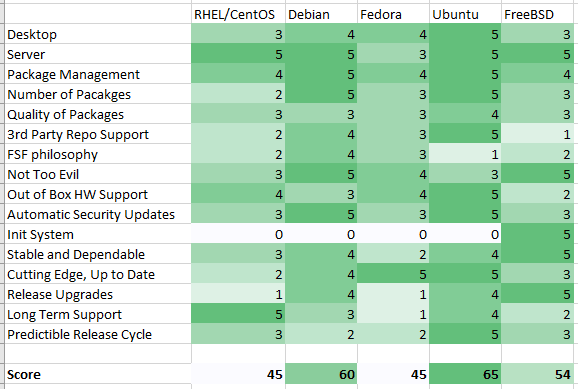

- Ubuntu desktop vs ubuntu server drivers#
- Ubuntu desktop vs ubuntu server full#
- Ubuntu desktop vs ubuntu server software#
After all, there is no desktop environment to manage. Desktop Performanceīecause Ubuntu Server doesn't have a GUI by default, it has potentially better system performance. But Ubuntu Server uses a process-driven menu, giving you more freedom regarding how you want the base system to work.
Ubuntu desktop vs ubuntu server software#
Installing Ubuntu Desktop is essentially like any other software install. Desktop Installationīecause Ubuntu Server lacks a GUI, installation differs from that of Ubuntu Desktop. While Ubuntu Desktop applications are geared towards use on the host machine, Ubuntu Server packages concentrate on establishing connectivity with clients and security. Specific packages include bind9 and apache2. Accordingly, Ubuntu Server can run as an email server, file server, web server, and Samba server.

These packages focus on server requirements. However, Ubuntu Server features a different set of packages. Ubuntu Desktop contains applications suited for regular use: there's an office productivity suite, multimedia software, and a web browser. Different Applications on Ubuntu Desktop and Server It will be interesting to see how this plays out over the next year and the interest level in the immutable Ubuntu Linux desktop variant compared to the "classic" Ubuntu desktop installation.2. More details for those interested on the Ubuntu blog. Its based on the same core packages and kernel as the main release, but without a desktop.
Ubuntu desktop vs ubuntu server full#
For tinkerers, the classic Ubuntu images would remain their preferred route to enable full control of (and responsibility for) their system." Ubuntu Server is a minimal version of the Ubuntu Linux distribution. Following in the same vein, I’ve dedicated this post to the equally popular CentOS vs. Last time I did a comprehensive comparison of Debian and Ubuntu to a pretty polarizing effect (considering the comments). CentOS Linux releases are based on stable and tested RHEL releases, while CentOS Stream provides a continuously updated stream of new bug fixes. For developers who see their device as a platform for open source development, the solution is container-based environments similar to the LXD based Crostini. 8 mins Read Welcome to another one of our Distro Debates. The main difference between CentOS Linux and CentOS Stream is their release model. In this why paper we look at 11 top reasons why we think Ubuntu is the ideal choice of operating system to support todays infrastructures and applications. However, this level of stability and security comes with trade-offs for developers and tinkerers, restricting modification of the base OS in favour of a ‘just works’ experience.
Ubuntu desktop vs ubuntu server drivers#
Gamers, for example, might opt-in to a kernel channel that ships the latest NVIDIA drivers as soon as they are available, in the same way the Ubuntu Desktop team did for Mesa as part of our work on the Steam snap. The use of snap channels also brings into the play the concept of ‘rolling’ certain elements of the distribution. It also introduces the concept of modularity to the user experience, where users may experiment with alternative desktop environment snaps while remaining on a highly stable, signed and secure LTS base. The properties inherent to Ubuntu Core such as secure boot, recovery states and hardware backed encryption would bring significant improvements to the security posture of a user’s PC. "Behind the scenes, the Canonical team has been actively exploring the benefits of Ubuntu Core beyond the realm of IoT, most notably in the context of developers and daily users. Today's blog post lays out some of the potential for Ubuntu Core on the Linux desktop: Ubuntu Core has traditionally been focused on the IoT market and other specialized areas while more recently Canonical engineers have been investigating in Ubuntu Core on the desktop side to serve as an immutable OS for greater reliability, security, and manageability.

Ubuntu Core with Snaps has long been Canonical's route for providing an immutable OS. A new blog post today outlines Ubuntu Core usage for an immutable Linux desktop. For next year's Ubuntu 24.04 LTS release, Canonical is planning to offer an Ubuntu Core based immutable desktop OS flavor as an alternative to the traditional Ubuntu Desktop image.


 0 kommentar(er)
0 kommentar(er)
